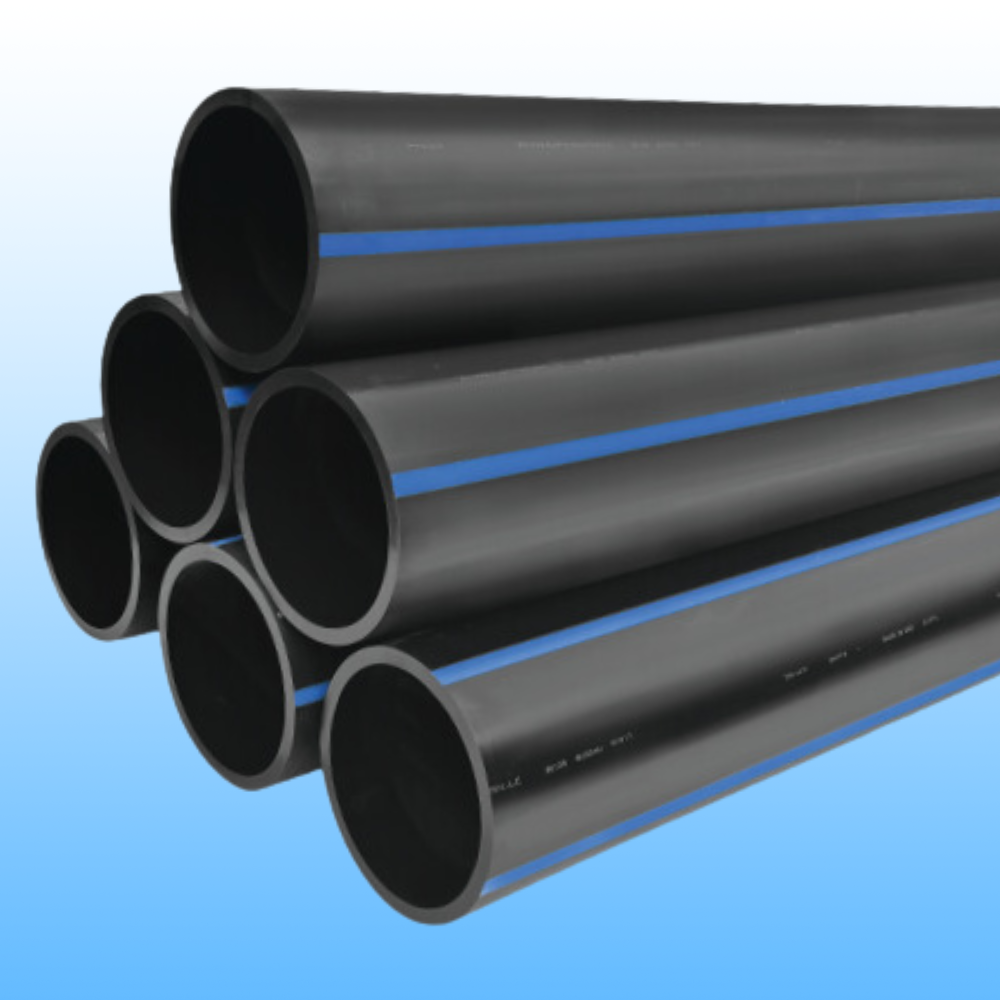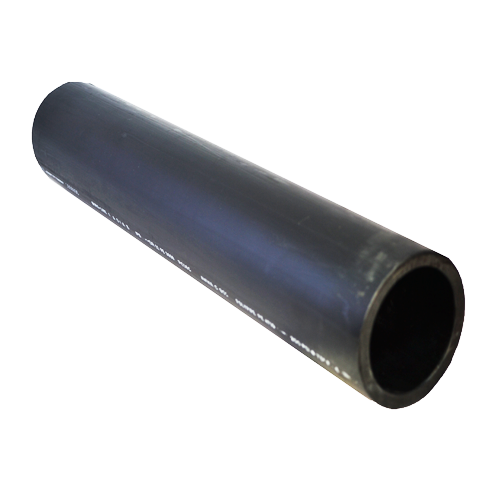Things to Know About Texas hdpe pipe manufacturer and Their Process
A Comprehensive Guide to the Different Uses of HDPE Pipe in Building and Market
HDPE pipes have become an essential element in contemporary construction and commercial applications. Their unique buildings, such as resistance to deterioration and lightweight design, make them ideal for a wide variety of uses. From supply of water systems to farming irrigation, HDPE pipelines provide services that boost effectiveness and sustainability. Comprehending their varied applications is necessary for professionals aiming to optimize infrastructure. What specific benefits do these pipes give each sector?
Water System and Circulation Solutions
Water and distribution systems are vital elements of urban infrastructure, commonly counting on high-density polyethylene (HDPE) pipelines for their toughness and performance. These systems transportation drinkable water from therapy centers to consumers, guaranteeing availability and security. HDPE pipes are preferred for their resistance to rust, chemicals, and severe temperature levels, which enhances their longevity and decreases upkeep costs. In addition, their light-weight nature permits for much easier installment and transport, making them ideal for different metropolitan and country applications.
The adaptability of HDPE pipelines enables them to be set up in limited spaces and around barriers, reducing the requirement for extensive excavation (custom hdpe pipe manufacturing Midland TX). Furthermore, their smooth interior surface decreases friction losses, boosting water flow prices. As cities proceed to expand, the need for dependable supply of water systems enhances, positioning HDPE pipelines as a lasting service for modern facilities tasks. Their tried and tested performance history makes them a favored choice among designers and city organizers alike
Wastewater Administration and Treatment
Reliable wastewater management and treatment are important for maintaining public health and ecological top quality. HDPE pipelines play an important function in this procedure as a result of their toughness, resistance to deterioration, and capability to withstand severe chemicals. These pipelines are generally used in various applications, consisting of sewer system, stormwater drain, and wastewater therapy centers. Their lightweight nature helps with simpler installation and transportation, decreasing labor costs and time.
On top of that, HDPE pipes have a smooth indoor surface area that minimizes friction loss, advertising reliable flow rates. They are also less susceptible to leakages and failings contrasted to typical products, making certain that pollutants are contained effectively. Their adaptability permits for flexibility in various soil problems, making them ideal for diverse environmental setups. As industries progressively prioritize lasting methods, the use of HDPE pipelines in wastewater monitoring systems straightens with goals for reducing ecological effect and improving resource recuperation.
Agricultural Irrigation Solutions
In farming settings, reliable irrigation solutions are vital for optimizing crop returns and handling water sources. HDPE (High-Density Polyethylene) pipes explanation play an essential role in contemporary watering systems because of their longevity, flexibility, and resistance to deterioration. Their ability to withstand high pressures makes them perfect for both surface and subsurface watering applications, ensuring uniform water circulation across fields.
Farmers can utilize HDPE pipelines in drip watering systems, which deliver water directly to plant origins, decreasing wastefulness and advertising healthy development. Furthermore, these pipelines are light-weight and easy to install, reducing labor costs and setup time. Their lengthy life expectancy and reduced upkeep requirements better boost their appeal in farming methods.
Moreover, HDPE pipes are ecologically pleasant, as they can be reused and do not leach dangerous chemicals into the dirt. This makes them a lasting selection for farmers aiming to adopt environment-friendly farming approaches while making the most of productivity.
Industrial Applications and Processes
Versatility is a trademark of HDPE pipelines, making them crucial in various industrial applications and processes. These pipes are widely made use of in chemical handling markets because of their superb resistance to a vast array of destructive materials. HDPE's lightweight nature, combined with high tensile toughness, enables simple installment and long-lasting efficiency in demanding settings.
In the oil and gas industry, HDPE pipelines play a crucial duty in transferring hydrocarbons and gases, many thanks to their resilience and adaptability - American Plastics HDPE Pipe for Oilfield. Furthermore, they are employed in mining procedures for the transportation of slurry and various other products, where conventional piping systems may fall short
Moreover, HDPE pipes are significantly utilized in making facilities for supply of water lines and page wastewater administration. Their capability to withstand extreme temperatures and pressures makes them suitable for a range of industrial procedures. Overall, HDPE pipes add substantially to performance and safety and security across diverse industrial applications.
Stormwater Administration and Drain Solutions
Stormwater management and drain systems are crucial elements in metropolitan infrastructure, made to take care of excess rainfall and decrease flooding dangers. High-density polyethylene (HDPE) pipes are significantly used in these systems because of their durability, adaptability, and resistance to deterioration. These pipelines efficiently carry visit our website stormwater away from inhabited areas, decreasing surface area runoff and protecting against waterlogging.
HDPE's lightweight nature assists in much easier installation, reducing labor prices and building and construction time. Furthermore, its resistance to chemicals and ecological stress factors warranties durability and dependability in various environments. Along with standard drainage applications, HDPE pipes are additionally employed in ingenious solutions such as green infrastructure, that includes rainfall yards and permeable sidewalks.

Often Asked Inquiries
How Does HDPE Pipe Contrast to PVC Pipeline in Price?
In general, HDPE pipe has a tendency to be a lot more pricey than PVC pipeline because of its enhanced durability and adaptability. Lasting price factors to consider, such as maintenance and life-span, might favor HDPE in specific applications.
What Is the Lifespan of HDPE Pipeline Under Diverse Problems?
HDPE pipelines typically have a lifespan of 50 to 100 years, depending on ecological problems, installment methods, and usage. Elements such as temperature, soil kind, and exposure to chemicals can significantly influence their sturdiness.
Can HDPE Piping Be Recycled After Use?
Yes, HDPE pipelines can be recycled after use. The reusing procedure entails melting down the product, permitting it to be repurposed right into new products, thus advertising sustainability and minimizing ecological effect connected with plastic waste.
Exist Any Type Of Details Installment Difficulties With HDPE Pipes?
Installation difficulties with HDPE pipelines include proper jointing techniques, ensuring appropriate trench problems, and taking care of thermal expansion. In addition, competent labor is called for to manage customized tools, which can make complex the installation procedure in numerous settings.

What Qualifications Should I Seek When Purchasing HDPE Pipelines?
When buying HDPE pipelines, one need to try to find qualifications such as ASTM, AASHTO, and ISO, which verify quality and compliance with sector criteria, ensuring durability and efficiency in various applications. - custom hdpe pipe manufacturing Midland TX